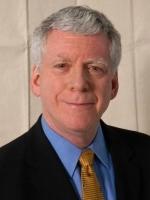Initial draft by Herb Koplowitz, February
The origins of our focus is the body of work on organizations developed first in the early 1950s by Sir Wilfred Brown and Elliott Jaques, later developed by Jaques and others into a discipline called “Requisite Organization”. The core of that work was a complete-discipline approach to the MAH, the managerial accountability hierarchy. By MAH we mean an organization that pays employees a regular salary in exchange for use of their ability to do work, using that ability to accomplish strategic goals efficiently and in a trustworthy and respectful manner for the benefit of owners, employees and society. By “complete-discipline approach” we mean that it comprises all five levels of a complete discipline, defined and then illustrated as follows:
1. Techniques, methods for using the templates specified by the engineering of the discipline.
- For consultants, time span interviewing in order to place manager-subordinate roles one stratum apart.
- For managers, the managerial leadership practices (task assignment, context setting, etc.) to meet their accountability to exercise leadership.
- For employees, giving best advice for which they are accountable.
2. Engineering, the system of templates, grounded in the science, to solve a real-life problem (in this case, optimizing strategic effectiveness, efficiency and trust and respect).
- Place the manager’s role one stratum above the subordinate’s role.
- Define “employee” as someone who receives regular salary in exchange for working with full commitment on all tasks assigned by their manager, for giving their manager their best advice and for staying within policy.
3. Science, validated beliefs about relevant aspects of nature (in this case, human nature). These beliefs are described as a system of facts and causal laws expressed within the terms of the conceptual framework.
- An individual tends to get more valuable advice about their work from someone one stratum more capable than they are than from someone at their own level or someone two levels above them
- An individual feels more respected when their advice is considered.
4. Conceptual framework, the system of concepts used to make sense of data.
- Capacity for judgment , an individual’s ability to manage complexity, dealing with the uncertainty that remains after one has made use of one’s skills and knowledge.
- Capacity to do work is comprised of capacity for judgment, skills and knowledge (the ability to apply methods and facts, without bringing them to consciousness, to solve problems), values and the absence of personal dysfunction.
5. Philosophy of science, an approach to determining the objective truth about an aspect of nature.
- Define all terms univocally.
- Do not pretend to do arithmetic with ordinal-scale numbers
The work on MAHs has led to insights both in other areas and other ways, and these, too, are part of our focus.
Other areas: other types of organization. The RO approach to understanding the MAH serves as a model for understanding other types of organization, and some of the truths and methods regarding the MAH apply directly to partnerships, associations, families and other social groups.
- The notion of an advisory role relationship, in which one person is expected to give unsolicited advice to another who is expected to consider it, is useful in most organizations, even ones without manager-subordinate relationships.
- RO’s engineering approach, seeking a relationship between a science and a system of techniques and templates, allows the study of any type of organization to go beyond a best-practices approach.
Other ways: other applications of strata. RO’s pioneering work on strata of work complexity and strata of ability to manage complexity has application well beyond the design of organizations.
- How can a marketing campaign be designed to be most effective for the stratum of individual most likely to purchase the product?
- How can an education system be best designed when children of the same age may have different levels of ability to handle complexity?
While the core focus of our group is the MAH, we will also encourage the exploration of other forms of organization and other applications of the concept of stratum.





